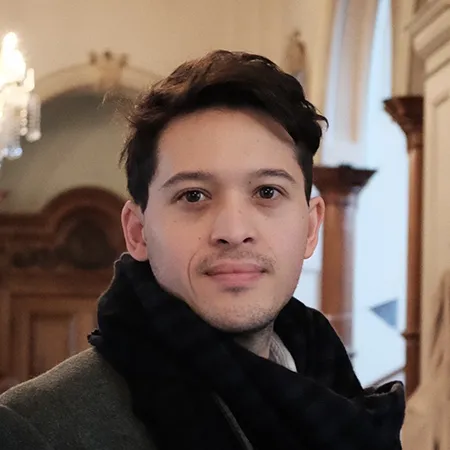Small-scale fishing is low-technology, low-capital fishing by individual households, as distinct from fishing by large commercial companies. The island of Jamaica in the Caribbean has over 1000km of coastline, and small-scale fishing contributes to the livelihoods of upwards of 75% of households in some communities, providing an important source of protein in many rural areas. In this talk, I present mathematical models that describe why fishers target particular fish species in a local resource pool. Using a modelling approach based on belief propagation networks, I show that social ties can explain recorded patterns of small-scale fishing at Bluefields Bay, a conservation area in Jamaica. This result suggests that fishers do not behave independently of one another but rather they share information that influences individual fishing decisions. The institutional landscape around small-scale fishing is changing rapidly in Jamaica, with increasing mandates for co-management of resources in fishery conservation areas. Therefore, understanding the role of social ties in fisher decision-making will be important for developing effective co-management strategies and policies.
Presenters
Phillip P.A. Staniczenko
Dr. Phillip Staniczenko is an Assistant Professor in the Biology Department at Brooklyn College, City University of New York (CUNY), where he studies the effect of environmental change on species interactions and ecosystem services. He is also a faculty member of the Ecology, Evolutionary Biology, and Behavior (EEB) PhD subprogram at the CUNY Graduate Center. He received his undergraduate and graduate degrees in physics from the University of Oxford, followed by a postdoctoral fellowship in ecology and evolution at the University of Chicago and a research fellowship in environmental risk at...
Phillip P.A. Staniczenko
Dr. Phillip Staniczenko is an Assistant Professor in the Biology Department at Brooklyn College, City University of New York (CUNY), where he studies the effect of environmental change on species interactions and ecosystem services. He is also a faculty member of the Ecology, Evolutionary Biology, and Behavior (EEB) PhD subprogram at the CUNY Graduate Center. He received his undergraduate and graduate degrees in physics from the University of Oxford, followed by a postdoctoral fellowship in ecology and evolution at the University of Chicago and a research fellowship in environmental risk at University College London. At SESYNC, Phillip was a postdoctoral research fellow developing network methods for studying the role of biotic interactions in shaping species’ geographical ranges, the effect of deforestation on host-parasitoid communities, and the impact of social influence on the catch portfolios of subsistence fishers.
External Links:
https://staniczenkoresearch.net
